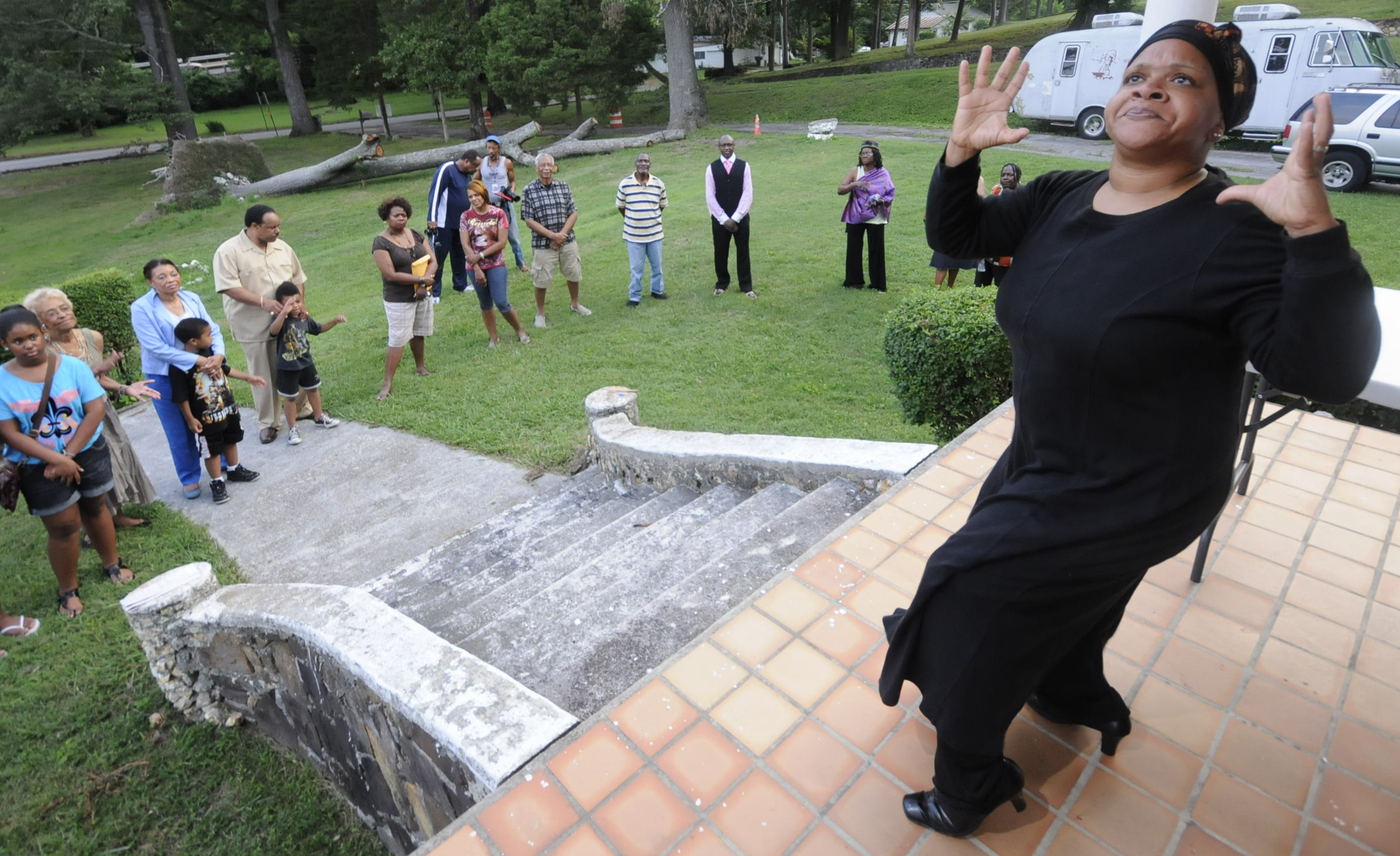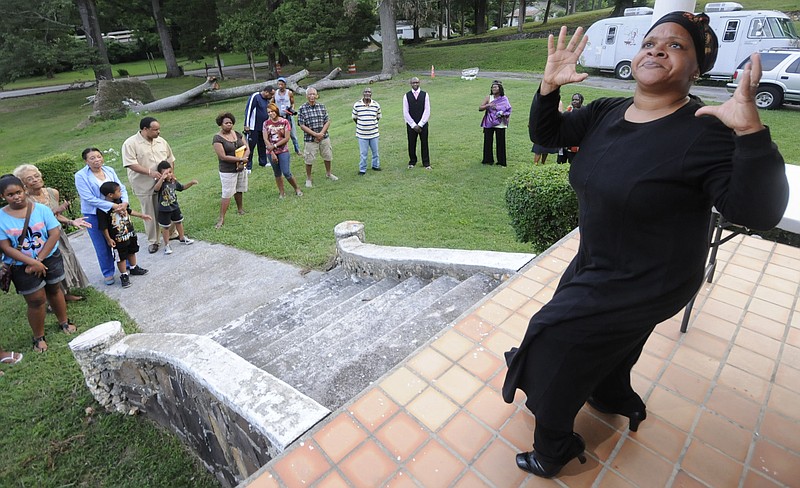 Maronica Tibbs, dancer and poetess, does an interpretive dance to the sounds of "Order My Steps" during Fridays Juneteenth celebration at the Mary Walker Foundation Headquarters in East Chattanooga. The group recognizes their African ancestors for the contributions they made in America in Civil War times.
Maronica Tibbs, dancer and poetess, does an interpretive dance to the sounds of "Order My Steps" during Fridays Juneteenth celebration at the Mary Walker Foundation Headquarters in East Chattanooga. The group recognizes their African ancestors for the contributions they made in America in Civil War times.Dancing, singing and poetry readings are how nearly two dozen people celebrated Juneteenth a little late on Friday.
"We're having it in July because so many things were already going on in June with the Southside Family Reunion and Riverbend, but we decided that Juneteenth is too important not to celebrate at all," said Charlotte S. Williams, who hosted the celebration.
Juneteenth refers to an incident in 1865 when Maj. Gen. Gordon Granger, commissioned by President Abraham Lincoln, was sent to Galveston, Texas, because the state still was holding slaves two years after the Emancipation Proclamation had been signed. The Emancipation Proclamation, signed Jan. 1, 1863, freed some slaves and laid the foundation for the 13th Amendment that abolished slavery in 1865 as a legal institution.
It was not until June 19, 1865, that slaves in Texas found out they were free, Williams said.
A recording by the late Donny Hathaway played "Someday We'll All Be Free" as people gathered into the Mary Walker Foundation in East Chattanooga where the Juneteenth celebration was held.
Carla Elliot read a poem challenging listeners to take action toward self-empowerment, Maronica Tibbs did an interpretive dance and Charles Williams read a poem titled "America." John Edwards, publisher of the Chattanooga News Chronicle, documented the event.
"We need to remember our past," Edwards said. "So many of our young people are disconnected from it, and that contributes to some of the ills that plague our community today. Young people are disconnected from the price that had to be paid to gain freedom."
If youths were more connected to history, they could benefit from knowing that God has helped blacks to progress despite their circumstances, Edwards said.
"God showed how he could take a people who were birthed into slavery like animals, and then today we have a black president," Edwards said. "We went up in space today, and African-Americans contributed to a lot of technology aboard the spacecraft."
If young people felt connected to history, they would know that despite their circumstances, they could be successful, he said.
"You have the ability to be whatever you want if you reach down inside you because all that we've done throughout history, the contributions, you ought to feel a part of that," Edwards said.
